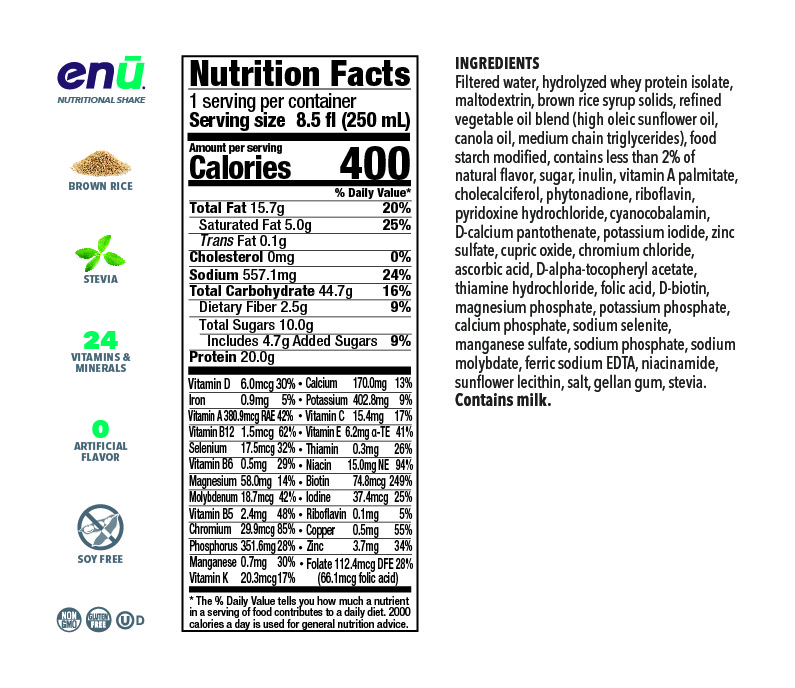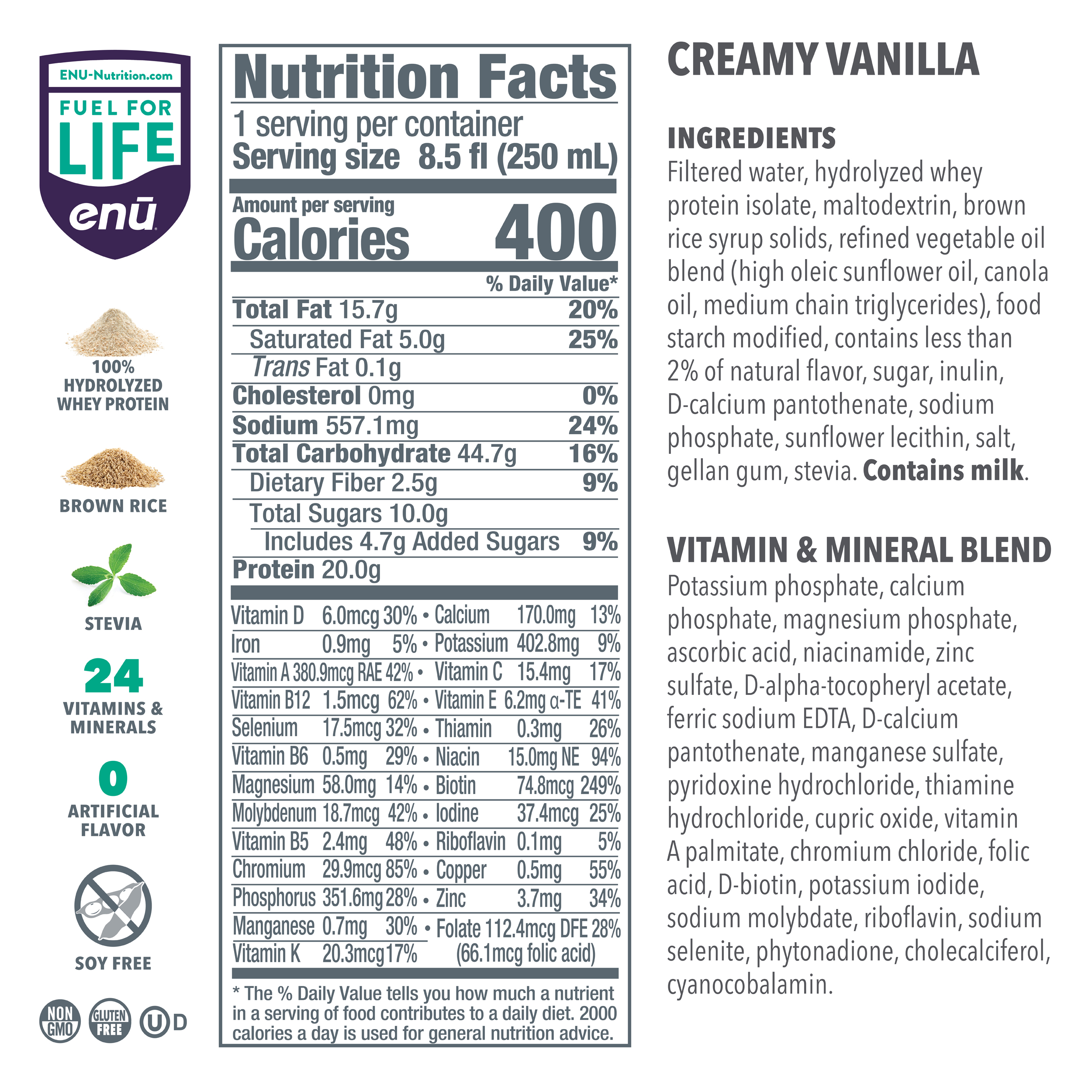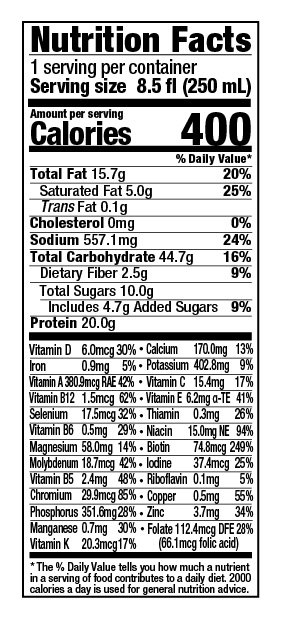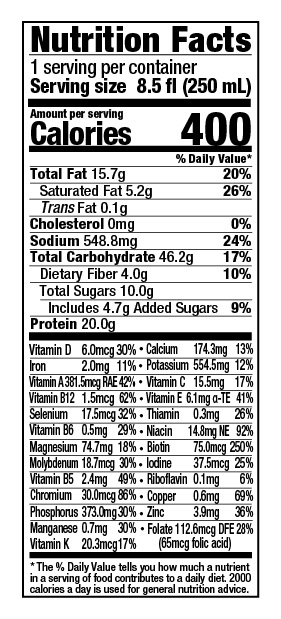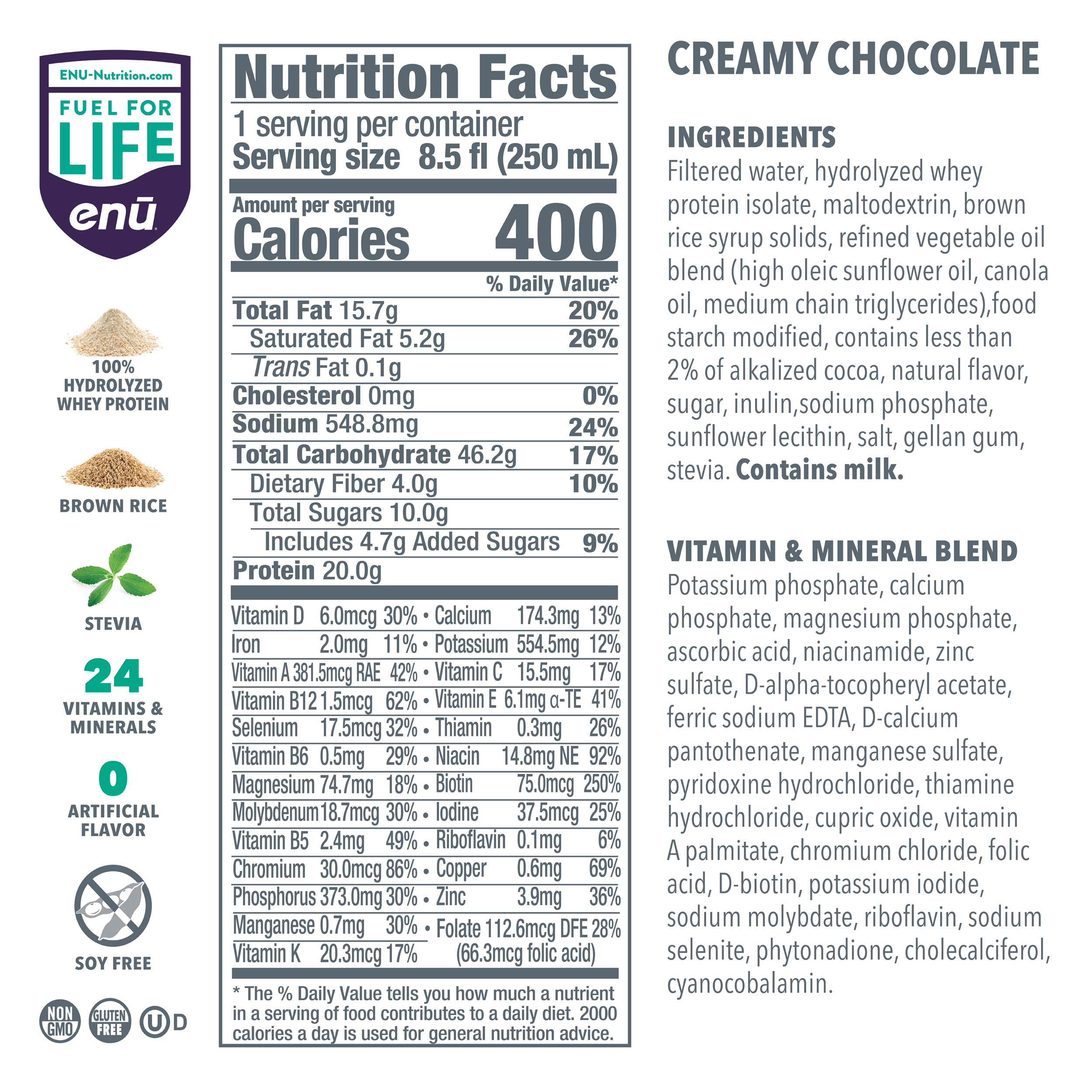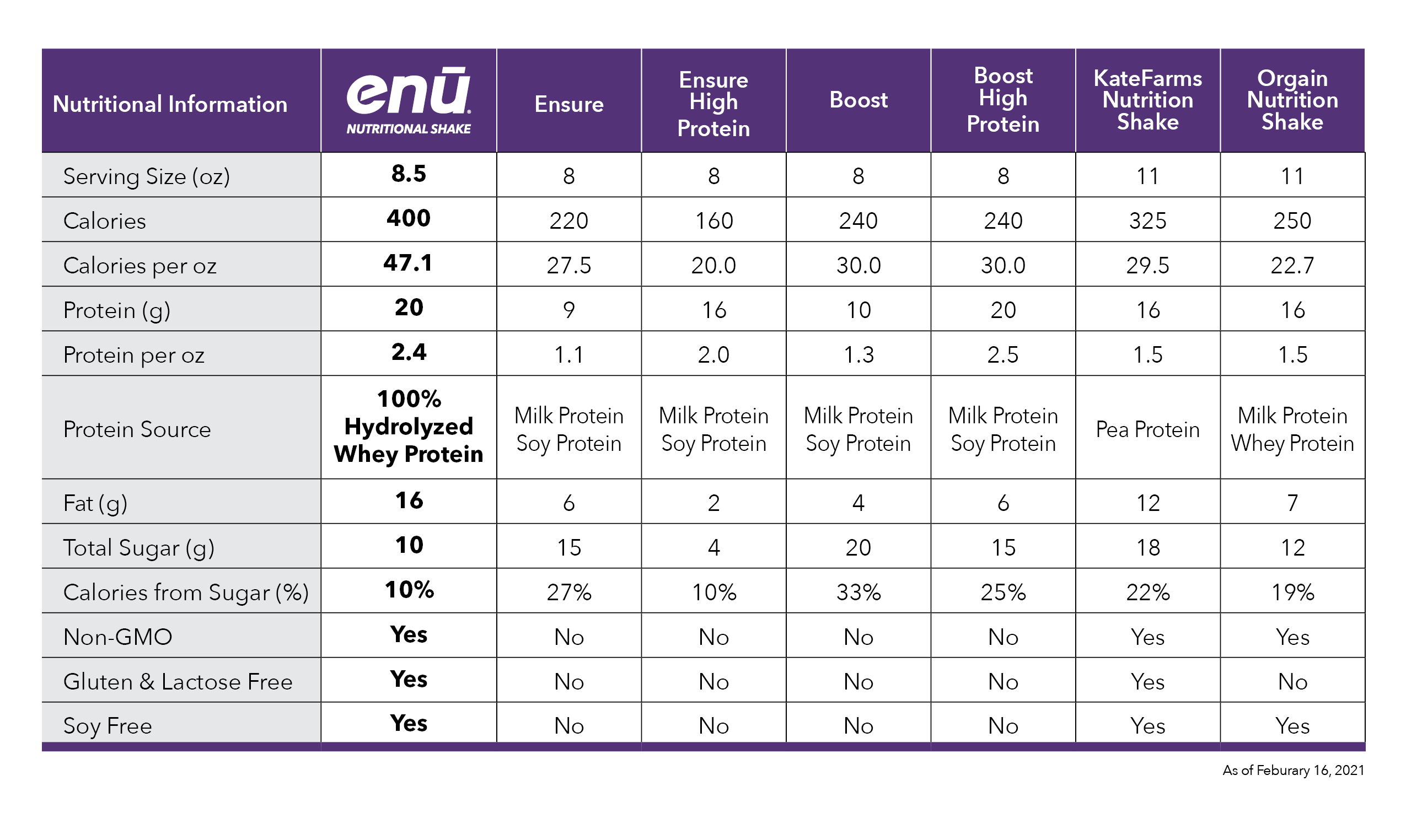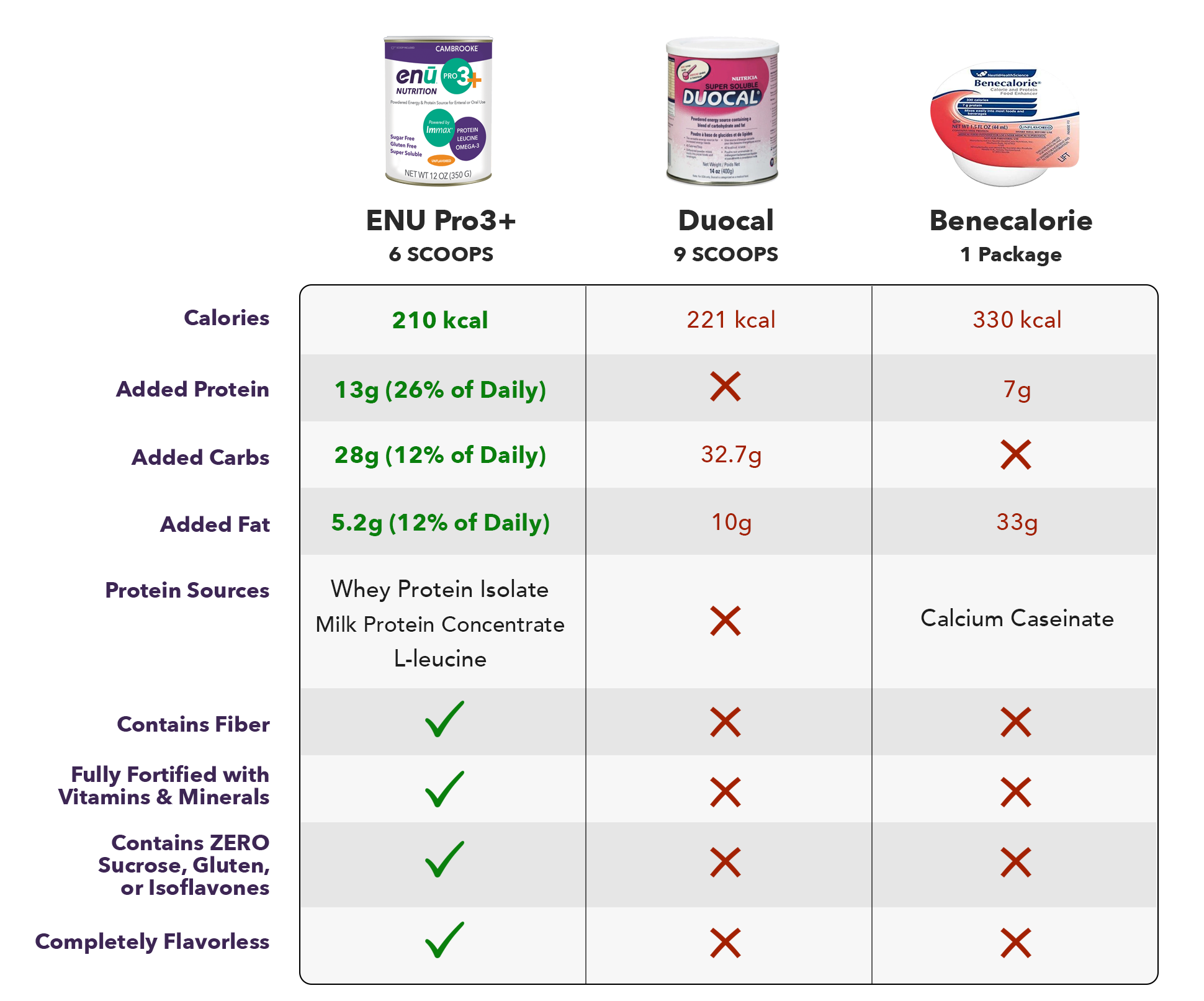
Get a FREE
ENU Intro Pack*
*Just Pay $2.00 Shipping

Why Do Cystic Fibrosis Patients Lose Weight?
Life with cystic fibrosis is hard on not only the patient but also their family as well. This condition is genetic, which means that it’s present from the moment a child is born and stays with them for their entire life. Because cystic fibrosis affects two of the most important systems in the body – the respiratory system and digestive system – the effects of this condition are serious and can impact all aspects of a person’s life. One of the main ways that cystic fibrosis hurts a person’s health is by causing severe, unwanted weight loss, which occurs for a number of reasons. Below, you can find out more about why cystic fibrosis patients lose weight and how medical nutrition support can help; keep reading to learn more.
What is Cystic Fibrosis?
As mentioned above, cystic fibrosis is a congenital illness passed on from parent to child, though it requires that both parents have the gene – and even then, there’s only a 25% chance that a child will have the condition. If they do, it means that they have a mutation in the cystic fibrosis transmembrane conductance regulator (CFTR) gene, which in turn makes the CFTR protein in cells behave incorrectly.
Under normal circumstances, this protein works to draw water to the cell membranes, water which thins out the mucus surrounding the cells in the airways and digestive tract. Without this water, the mucus in people with CF gets thick and sticky, leading to blockages at key points in the respiratory and digestive systems – the reasons for the many harmful effects of cystic fibrosis.
Effects of Cystic Fibrosis on Weight
Among the many detrimental effects of cystic fibrosis, one of the more severe and far-reaching is the weight loss so common to CF patients. This weight loss happens because of three specific complications in those with cystic fibrosis; find out more below.
Malabsorption of Nutrients
Though cystic fibrosis is often thought of as a respiratory condition, its effects on the digestive system are just as serious. That’s because CF makes it much more difficult for the body to break down and absorb the nutrients in food, thanks to the fact that mucus stops up the pancreas and prevents the release of important digestive enzymes. The overall effect of this is that much of the nutritional value of food – especially its fat and protein content – simply passes through the body without being absorbed.
Because of this, the body loses out on much of the calories and nutrients that typically come from food, robbing it of the resources it would otherwise use to maintain a healthy weight. This is one of the reasons why those with CF experience such drastic weight loss, and it may require medical nutrition support to address.
Difficulty Breathing
In any individual, breathing requires the use of energy to maintain, but in those with cystic fibrosis, the act of breathing is much more difficult because thick mucus blocks the airways, forcing the lungs to work harder to take in air. This additional work requires additional energy, which means that those with cystic fibrosis have to take in more calories; if they don’t, this extra energy expenditure could force their bodies to use stored energy in the form of fat and muscle mass, which often leads to weight loss.
Fighting Off Infections
Many people don’t realize this, but fighting off an infection in the body requires the use of additional energy to be successful. In those with cystic fibrosis, this energy is often difficult to obtain because of the malabsorption of nutrients, forcing the body to burn stored calories to survive and contributing to the tendency in these patients to lose unhealthy amounts of weight.
This is an especially important consideration for those with CF because the presence of thicker mucus in the airways allows bacteria and other contaminants to be trapped there. These germs then grow and develop into infections, which then require energy to fight. In a nutshell, the impact of infections on weight loss for those with CF is significant because of these patients’ increased odds of having an infection and the greater need for energy that these infections bring.
Preventing Weight Loss from Cystic Fibrosis
Because those with cystic fibrosis struggle to get the nutrients they need and often require even more calories than a healthy individual, it can be tough to stop weight loss. There are a few things you can do, however, to address this issue if you or a loved one struggles with CF.
- Eat throughout the day, and make sure to take a pancreatic enzyme supplement with each meal to facilitate digestion.
- Consume extra calories. For a man, aim for at least 3,000 calories each day to maintain your weight, and women should aim for at least 2,500 to stay at their current weight.
- Get plenty of fats and protein, since these nutrients are generally not absorbed by the intestines very well.
If you still struggle to maintain a healthy weight with cystic fibrosis, talk to your doctor or dietician for tips on how to address this problem.
Meal Replacement Shakes for Cystic Fibrosis Patients
If you or a loved one has cystic fibrosis, you know how tough it can be to eat enough food every day to maintain your body weight. Meal replacement shakes like those from ENU can help; each shake comes with 20 grams of protein from whey and soy isolates for easy digestion, along with heart-healthy fats and complex carbs. To learn more about these shakes and how they can help you prevent weight loss with cystic fibrosis, visit ENU online or call (855) 266-6733 today.




